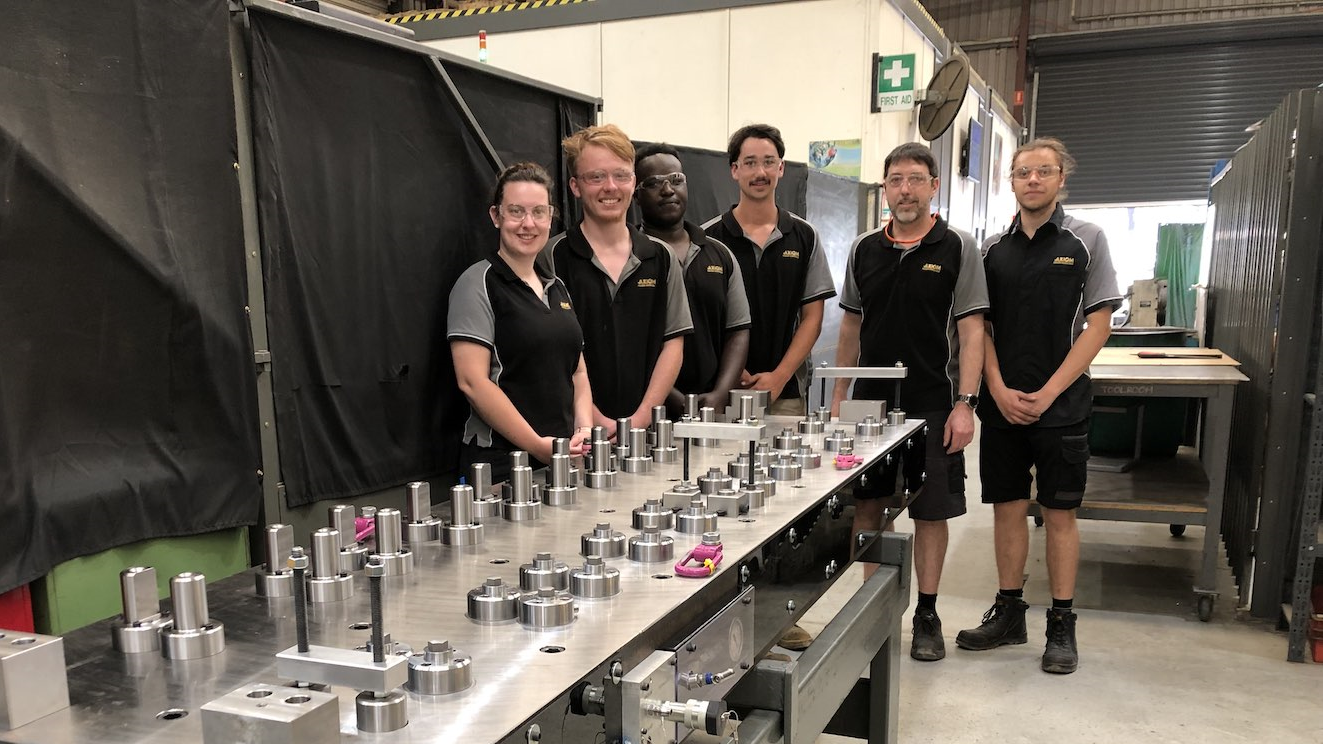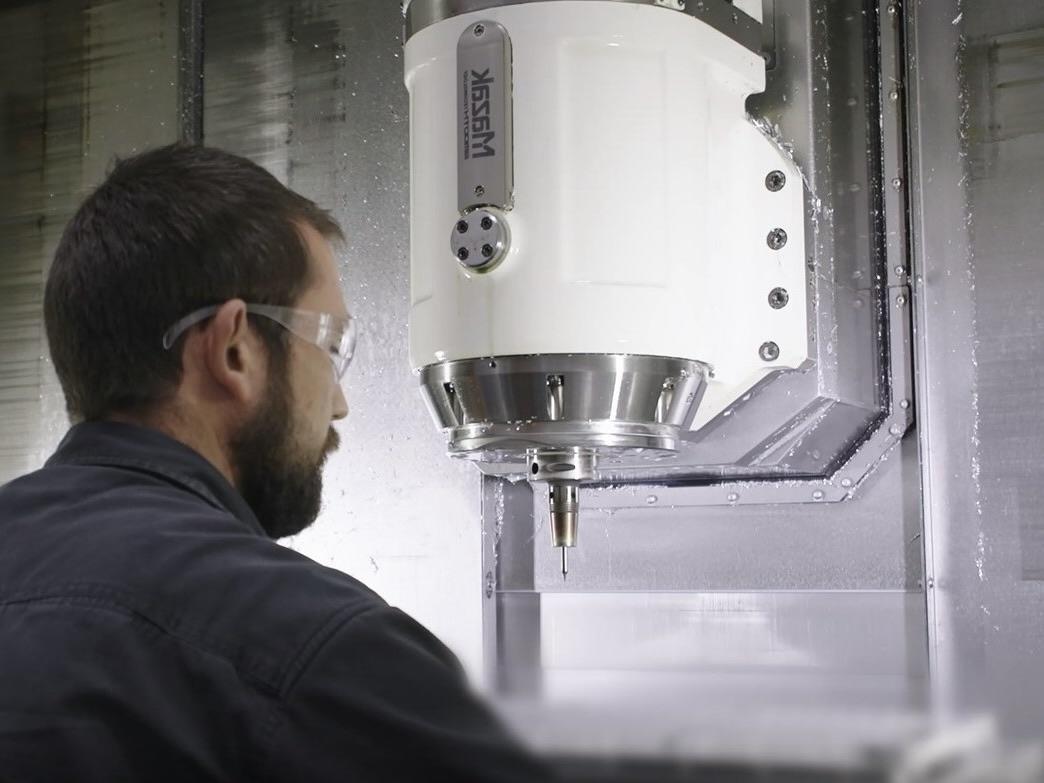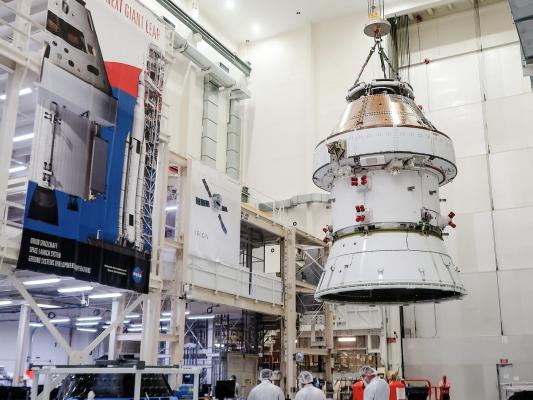NASA’s new space capsule is built to take humans further than ever before, with help from advanced Australian manufacturing.
Adelaide’s Axiom Precision Manufacturing and Newcastle’s Nupress Group have been contracted by Lockheed Martin to produce precision machined components for the next-generation Orion spacecraft.
With origins in automotive and toolmaking industries respectively, the two companies are capitalising on the lucrative opportunities that advanced Australian manufacturers can access by diversifying into space.
The Orion spacecraft will be the primary astronaut crew capsule used for NASA’s Artemis program, which will return humans to the Moon this decade and aim to continue on to Mars.

Axiom Precision Manufacturing
Axiom Precision Manufacturing began in 1979 as a family business specialising in automotive machining and manufacturing, before shifting its expertise to other industries in the 2000s.
Fred Hull, the company’s Aerospace and Defence Manager, says moving into the defence sector was its first step towards the space industry.
“From the beginning of Axiom’s transition away from automotive all those years back, we knew that our high-level CNC machining and precision manufacturing was a good fit for defence business,” Fred says.
“Gaining traction in the defence industry, we then focused on aerospace… once we achieved our AS9100 aerospace certification and had success with many Australian and international aerospace primes, we knew that the space industry should be highlighted on our business plan.”

Working on the advanced F-35 fighter jet program put the company in the frame for Lockheed Martin’s future space projects – and after proving its capability through an evaluation process, it was chosen as an Orion supplier.
With the door to the space industry now wide open, Fred looks forward to growing the company’s business further as a result.
“Manufacturing for the Orion program will be another stepping-stone in the advancement of our high-precision manufacturing, and will help drive our quality system to the next level.”
“Every time you lift the standards across your complete company, you create new opportunities in the same or other industries.”

Nupress Group
In the Hunter Valley, Nupress started producing press tools for steelmaking, rail, and construction in the 1970s, and adopted capabilities for advanced manufacturing in the 1980s.
This led to supplying consumables for the booming mining sector, among a range of industries – and then, as CEO Craig McWilliam recalls, the 2000s heralded another important change for his company.
“In 2012, when the mining bubble burst, Nupress made a strategic decision to move into the aerospace and health markets,” Craig says.
“Space was a logical next step … we are also constantly looking for exciting work opportunities that appeal to the current very talented engineering staff we have.”
Like Axiom Precision Manufacturing, Nupress was a supplier on Lockheed Martin’s F-35 program, and its entry into space was encouraged by the AS9100 aerospace quality management standard. This certification covers both defence and space, and helped the company step from the former to the latter.
Craig is keen to keep riding the wave and convert the Orion experience into more space work.
“We see that the successful manufacture of the parts delivered today gives us runs on the board, so that we can be considered for further opportunities,” he says.
“This (Orion) is an incredible opportunity for Australian sovereign capability – the technology transfer to Australia is invaluable.”
A trend set to grow
Lockheed Martin believes plenty of other small and medium-sized Australian enterprises are ready to follow Axiom Precision Manufacturing and Nupress into space.
Chris Hess, Head of Industrial Development at Lockheed Martin Australia, says his company is excited for other local companies to make the pivot, and is eager to help them adapt.
“Many Australian companies are doing incredible work and innovating cutting-edge technology in other industries, and they can apply that expertise in the space marketplace,” Chris says.
“(We can) partner with them to walk them through the process of taking their skills and applying them in a new way, and growing themselves, growing their people, and our nation’s space manufacturing capabilities.”
“We are also seeing companies investing in modern technologies, attaining the highest levels of quality accreditations, and new facilities to improve their capability, capacity, and readiness to support bigger programs.”
“These investments and eagerness to expand industrial capabilities instil confidence that a company can deliver.”
On top of having the right industry capacity, Australia also has it at the right time, adds David Ball, Regional Director Australia and New Zealand for Lockheed Martin Space – as the nation’s space sector matures and lays foundations for the long term.
“Australia has one of the fastest-growing space sectors in the world… we see significant potential for Australian-produced components in more spacecraft, as well as other systems made by Lockheed Martin,” David says.
“That new work presents new products and skills that plug into the expanding global supply chain, and opportunities to develop in-country STEM skills for the next generation to support the nation’s growing asset of space programs and capabilities.”

Titan Lake VR Astronaut Training
Raytracer’s VR headset simulates a zero-gravity environment underwater for astronaut training.

